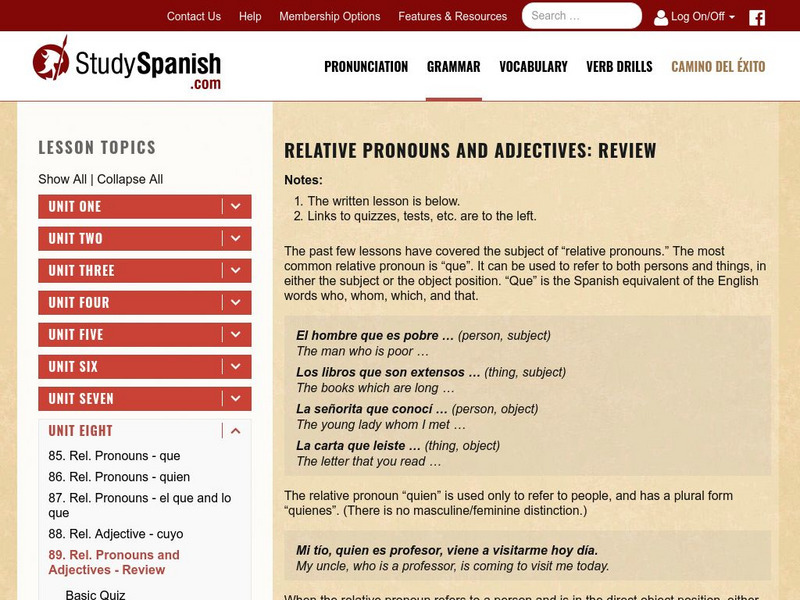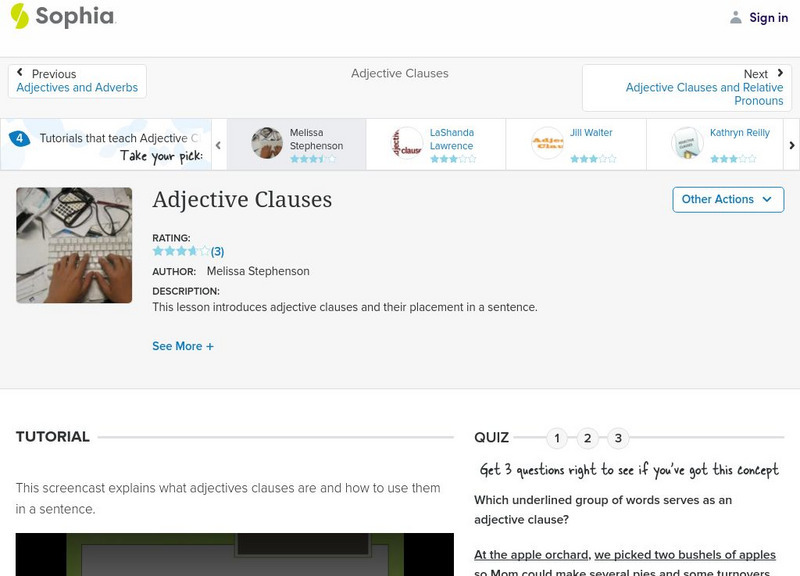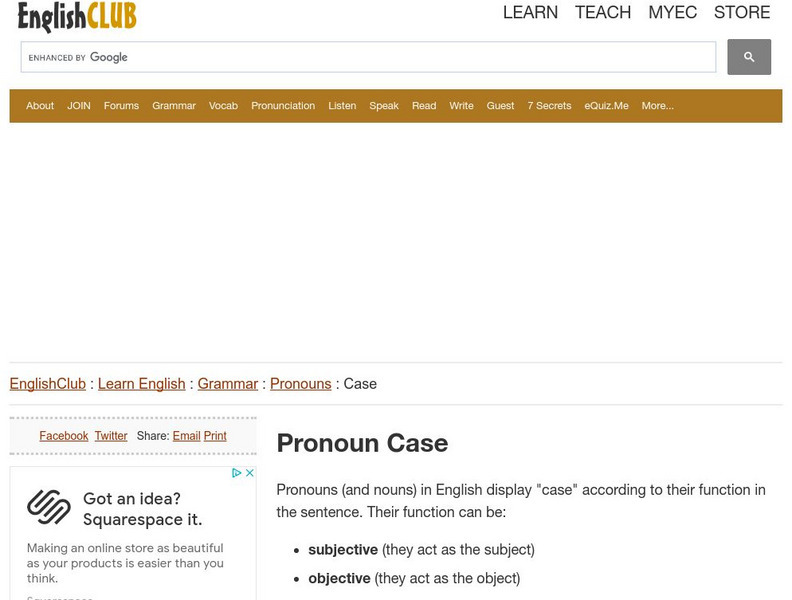Curated OER
Personal Indentification For Travel
Students identify and describe the various documents they will need when traveling in the United Stans. They complete forms needed to acquire documentation needed for travel. Students write a description of a travel experience outside...
Curated OER
Who's vs. Whose
In this English grammar learning exercise, students understand the differences between the usage of the words "who's" and "whose." Students read the definition of each and the given examples before taking the online interactive exam.
Curated OER
Clauses
In this clauses worksheet, students correct sentences by inserting commas to set off clauses and change clause pronouns to 'that' when possible. Students combine two sentences into one using adjective clauses.
Curated OER
Prepositional Phrases
A thorough grammar activity on prepositional phrases first reviews the definitions and examples of prepositional phrases, adjective phrases, and adverb phrases, before prompting students to apply their knowledge to several different...
Curated OER
Wacky Web Tales
Students study the parts of speech and then review them. They identify each part of speech and place them on a tree map. Then they visit a website to create a "Wacky Web Tale" using information from the tree map. They print their tales...
Curated OER
The Parts of Speech -- Grammar
Students discover the different part of speech. The words are color coded and should help them remember the different parts of speech.
Study Languages
Study Spanish: Relative Pronouns: Quien
An excellent introduction to using the Spanish relative pronoun "quien," that contrasts its use with the pronoun "que," Ample examples in Spanish and English illustrate this principle. Students may test their understanding of the...
Study Languages
Study Spanish: Relative Pronouns and Adjectives: Review
An excellent review of relative pronouns and adjectives in Spanish. Ample examples in Spanish and English illustrate their usage. Students may test their mastery of this principle with a quiz that follows the lesson.
Sophia Learning
Sophia: Adjective Clauses and Relative Pronouns 2
This slideshow lesson focuses on adjective clauses and relative pronouns; it explains what an adjective clause requires and the questions it answers in the sentence. It provides a list of relative pronouns: who, which, that, whom, whose,...
Study Languages
Study Spanish: Relative Pronouns: El Que, La Que, Lo Que
An online introduction to using the Spanish relative pronouns "el que," "la que," "los que," "las que," and "lo que." Ample examples in Spanish and English illustrate their usage. Students may test their understanding of these relative...
Study Languages
Study Spanish: Relative Pronouns: Que
Fantastic explanation of relative pronouns with an introduction to using the Spanish relative pronoun "que." Ample examples in Spanish and English illustrate the use of "que," as a relative pronoun. Students may test their understanding...
Sophia Learning
Sophia: Adjective Clause
This lesson focuses on adjective clauses; it defines adjective, clause, and adjective clause. It explains the function of adjective clauses, how they are formed using relative pronouns or adjectives, how to identify them in a sentence,...
English Club
English Club: Learn English: Grammar: Pronouns: Pronoun Case
An explanation and examples of personal, relative, interrogative, and indefinite pronouns in subjective, objective, and possessive case.
English Worksheets Land
English Worksheets Land: Relative Pronouns and Adverbs: Relative Adverbs [Pdf]
Practice using relative adverbs by filling in the blanks in the sentences on this worksheet.
Other
Spanish in Texas: Spanish Grammar in Context Introduction to Pronouns
This Spanish language reference clarifies information about pronouns. Lists of the following types of Spanish pronouns are included: subject , direct object, reflexive, demonstrative, relative , indefinite, and interrogative are...
Study Languages
Study Spanish: Relative Adjectives: Cuyo
An excellent introduction to using the Spanish relative pronouns "cuyo," "cuya," "cuyos," and "cuyas." Ample examples in Spanish and English illustrate their usage. Students may test their understanding of these relative adjectives with...















![English Worksheets Land: Relative Pronouns and Adverbs: Relative Adverbs [Pdf] Unknown Type English Worksheets Land: Relative Pronouns and Adverbs: Relative Adverbs [Pdf] Unknown Type](https://d15y2dacu3jp90.cloudfront.net/images/attachment_defaults/resource/large/FPO-knovation.png)

